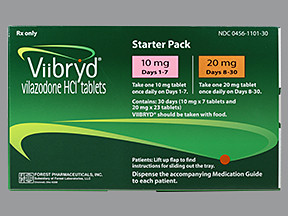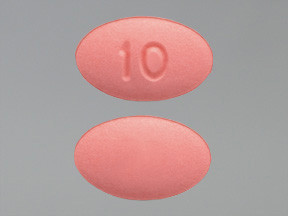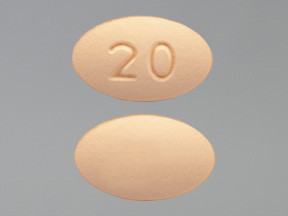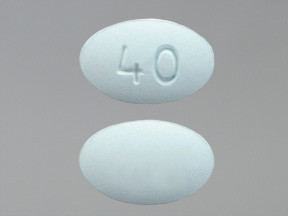VILAZODONE - ORAL
PHONETIC PRONUNCIATION: (vil-AZ-oh-done)
COMMON BRAND NAME(S): Viibryd
GENERIC NAME(S): vilazodone HCl
Uses
USES: Vilazodone is used to treat depression. It is an SSRI (selective serotonin reuptake inhibitor) and partial serotonin receptor agonist. It works by helping to restore the balance of certain natural substances in the brain (neurotransmitters such as serotonin). This medication may improve your mood, sleep, appetite, and energy level and may help restore your interest in daily living.
How to use VILAZODONE - ORAL
HOW TO USE: Read the Medication Guide provided by your pharmacist before you start taking vilazodone and each time you get a refill. If you have any questions, ask your doctor or pharmacist. Take this medication by mouth with food as directed by your doctor, usually once daily. The dosage is based on your medical condition, response to treatment, and other medications you may be taking. Be sure to tell your doctor and pharmacist about all the products you use (including prescription drugs, nonprescription drugs, and herbal products). To reduce your risk of side effects, your doctor may start you at a low dose and gradually increase your dose. Follow your doctor's instructions carefully. Do not take more or less medication or take it more often than prescribed. Your condition will not improve any faster and your risk of side effects will increase. Use this medication regularly to get the most benefit from it. To help you remember, take it at the same time each day. This medication may cause withdrawal reactions, especially if it has been used regularly for a long time or in high doses. In such cases, withdrawal symptoms (such as mood swings, headache, tiredness, sleep changes, ringing in the ears, seizures, numbness/tingling, "shock-like" feelings) may occur if you suddenly stop using this medication. To prevent withdrawal reactions, your doctor may reduce your dose gradually. Consult your doctor or pharmacist for more details and report any withdrawal reactions right away. Tell your doctor if your condition persists or worsens.
Side Effects
Precautions
Interactions
Overdose
Images

- color
- multi-color (2)
- shape
- oblong
- imprint
- 10 or 20
Reviews
Faq for VILAZODONE - ORAL
Vilazodone is an oral medication primarily used to treat major depressive disorder (MDD).
Vilazodone works by increasing the levels of serotonin, a neurotransmitter in the brain that helps regulate mood.
Common side effects of vilazodone may include nausea, diarrhea, headache, dizziness, insomnia, and sexual dysfunction.
It may take several weeks for vilazodone to start showing its full effects. It is important to continue taking the medication as prescribed, even if you do not feel immediate improvement.
It is generally not recommended to consume alcohol while taking vilazodone, as it may increase the risk of side effects such as drowsiness and dizziness.
Vilazodone is not approved for use in children and adolescents under the age of 18. It is primarily prescribed for adults with major depressive disorder.
Vilazodone is not considered an addictive medication. However, it is important to follow the prescribed dosage and not abruptly stop taking the medication without consulting a healthcare professional.
The safety of vilazodone during pregnancy and breastfeeding is not well-established. Consultation with a healthcare professional is necessary to weigh the potential risks and benefits in each individual case.
It is not recommended to abruptly stop taking vilazodone without consulting a healthcare professional. They can guide you on the appropriate dosage reduction schedule to minimize withdrawal symptoms.
Warning
WARNING: Antidepressant medications are used to treat a variety of conditions, including depression and other mental/mood disorders. These medications can help prevent suicidal thoughts/attempts and provide other important benefits. However, studies have shown that a small number of people (especially people younger than 25) who take antidepressants for any condition may experience worsening depression, other mental/mood symptoms, or suicidal thoughts/attempts. Therefore, it is very important to talk with the doctor about the risks and benefits of antidepressant medication (especially for people younger than 25), even if treatment is not for a mental/mood condition. Tell the doctor right away if you notice worsening depression/other psychiatric conditions, unusual behavior changes (including possible suicidal thoughts/attempts), or other mental/mood changes (including new/worsening anxiety, panic attacks, trouble sleeping, irritability, hostile/angry feelings, impulsive actions, severe restlessness, very rapid speech). Be especially watchful for these symptoms when a new antidepressant is started or when the dose is changed.
Disclaimer
IMPORTANT: HOW TO USE THIS INFORMATION: This is a summary and does NOT have all possible information about this product. This information does not assure that this product is safe, effective, or appropriate for you. This information is not individual medical advice and does not substitute for the advice of your health care professional. Always ask your health care professional for complete information about this product and your specific health needs.



No Reviews Yet